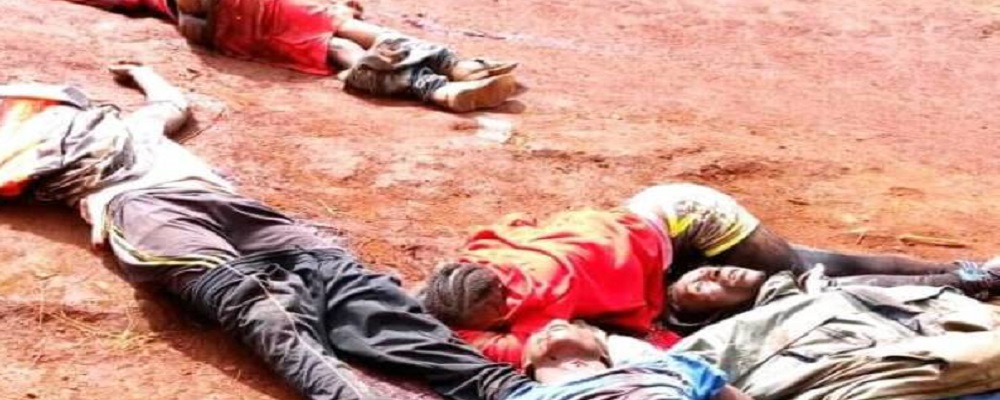Repression is worsening in Cameroon- The Economist
THE parade featured singing schoolchildren and goose-stepping soldiers. A giant presidential portrait was wheeled along the boulevard. To some observers it must have looked like a comic sketch about an event staged by an African dictator. But no one dared snigger. The celebration of Cameroon’s national day on May 20th was lorded over by President Paul Biya, who at 85 is Africa’s oldest head of state.
He hoped the parade would show national unity. But it hinted at a deep fissure dividing Cameroon. In the country’s two English-speaking regions a simmering uprising has been met by brutal repression. As members of the main opposition party, the Social Democratic Front, marched past the president they showed their indignation. Placards were banned, so the marchers pulled up their shirts to expose pictures taped to their bodies of people tortured, mutilated or murdered by the government.
The conflict started in October 2016, when English-speaking lawyers took to the streets complaining that legal documents were not being translated from French and that English-speakers were discriminated against. The country has been officially bilingual since its two constituent parts voted to form a federal republic after gaining independence in 1960 and 1961. But English-speakers, who make up less than a fifth of the population, say their regions get less than their fair share of public money and that the government forces them to use French in schools, courts and other public institutions.
Mr Biya’s government responded by arresting activists and cutting off the internet in English-speaking regions. In doing so it fanned secessionism, transforming peaceful protests into a vicious war, with kidnappings and beheadings. Atrocities have been committed by both sides. More than 100 civilians have reportedly been killed, as have more than 40 members of the security forces.
Peter Henry Barlerin, America’s ambassador to Cameroon, says April proved the bloodiest month. He accuses the government of authorising “targeted killings” and the “burning and looting of villages”. Thousands of people have fled, many of them across the border into Nigeria.
The strife is also affecting the fight against Boko Haram, a jihadist insurgency that has spilled over from Nigeria into neighbouring countries. The dense swamps that surround Lake Chad in northern Cameroon give the jihadists cover. Elite Cameroonian soldiers, who are among the most effective fighters in the region, have been removed from Lake Chad and redeployed to English-speaking regions in the south.
There are few signs that Mr Biya is trying to find a peaceful solution. For much of the year the ageing president reportedly rules Cameroon from a luxury hotel in Switzerland, a country he likes to visit with his wife Chantal (known for her designer dresses and signature hairstyle).
In March Mr Biya called his first cabinet meeting since October 2015 and gave a speech that sounded as if he had already hit the campaign trail for the presidential election scheduled for later this year. Mr Biya has not yet said whether he will stand, but if he does run it would be for his seventh term in office.
In any case, the government is wasting no time clearing his path. Ahead of senatorial elections in March it arrested several journalists and opposition activists. On May 25th seven activists were convicted on charges of rebellion and acts of terrorism. They were given jail sentences of 10-15 years. Cameroon’s war over words seems likely only to intensify.
Source: The Economist





